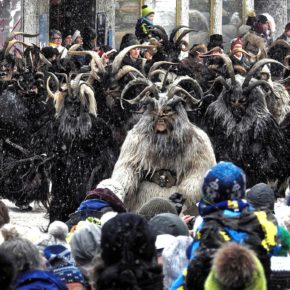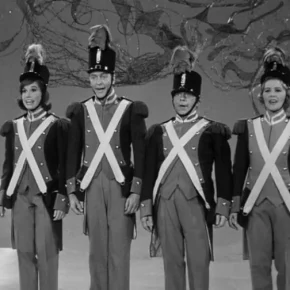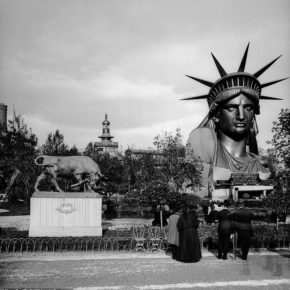This morning’s terrorist attacks in London have brought forth a sea of thought and emotion.
Firstly, as the day progresses, I recall vividly where I was on September 11, 2001. I was teaching a class in Metarie, LA, having flown down the previous evening. I’d heard about the attacks on the World Trade Center, but at the time it didn’t seem like an attack. All we heard on the radio was “a small plane has crashed into the Trade Center.” Didn’t seem like much, right?
As the day rolled along, of course, the true scale of the disaster became clear: thousands of people dead, two landmark buildings destroyed, a third one heavily damaged, all airlines grounded, and precious little info about the cause. The greater New Orleans area became a bit spooky and depressing: Navy and Coast Guard planes flew overhead to defend the port and the oil derricks off-shore, and depressed people drowned their sorrows in the French Quarter. A few days later, I managed to drive back to Connecticut with a co-worker.
The same feeling has hit again, if only in sympathy with Londoners.
And that ties back to security. From all accounts I’ve seen and read today, the London police, fire and EMS did a spectacular job in the aftermath of the disaster. The three groups worked together, calmly and seamlessly assessing the situation, treating the injured, securing the area, and reassuring the public. Volunteers were put to work within the system, again in a very orderly way. People filed out of the Underground tunnels in an orderly manner, and Londoners carried on with things as well as is possible, given the situation.
I’m then reminded of the situation on The Mall here in D.C. this past Monday. I went to the Lincoln Memorial area with sprite and her parents to see the always-impressive fireworks over Washington Monument. As is usually the case in the post-9/11 world, there were security entrances leading into the Mall area, the rest of the border sealed with mobile wooden fencing that was sturdily moored into the ground.
I was wearing the same stuff I’d worn to the Nationals–Mets game at RFK: a t-shirt, cargo shorts, a baseball cap, and Teva sandals. On the way through the security checkpoint, one of the uniformed Secret Service officers asked me if I had anything in my pockets. I quickly emptied the contents (a cell phone, my wallet, keys, some coins and a lint-free glasses cloth). He then – in a rather accusatory tone – asked: “do you have a knife on you?”
I was taken aback, and reflexively (and calmly) responded, “that’s a rather daft question to ask.” Granted, that was a very risky maneuver, as the USS is not exactly known for its sense of humor. But somehow, the combination of cargo shorts, ball cap, long hair and sandals met the profile of “unsafe-knife-wielding-guy” or some kind of terrorist. Whatever the case, it was a bit much, and I don’t see that it achieved anything. In fact, it made me more uneasy about security that a bunch of high-strung law enforcement agents had full control over the people in the controlled Mall area.
(Full disclosure: I typically don’t carry a knife on me, save for when I’m hiking in the wilderness. Heck – I seldom have a pair of nail clippers handy when I need ’em!)
Adding a bit more fuel to the fire, the situation after the fireworks had ended (they were great, by the way) was even more disconcerting. The security fence was solidly moored, thus necessitating that the entire crowd leave via the same limited number of portals. People crowded into a tight and slow queue, unable to move to the exit. Had somebody decided to wreak havoc on the crowd, we’d all have been sitting ducks.
It’s painfully ironic that a celebration of the United States and its freedom has become an example of the erosion of freedoms in the post-9/11 world. It’s like “c’mon down and celebrate freedom – now let’s get on with that full cavity search!”
In this case, security has turned into the theatre of the absurd. Here in D.C., we have many law enforcement agencies with overlapping jurisdictions. The USS, the U.S. Park Police, the U.S. Capitol Police, the D.C. Police Department, Metrorail police, the FBI and the CIA all have power to arrest in the District. Yet these agencies seldom work well together. Note the two small plane airspace intrusions over D.C. in the past two months. D.C. officials were amongst the last to know what was going on, when they should’ve been the first. Even D.C.’s own police, fire and EMS aren’t usually on the same page, a similar situation to New York City in 2001. If a disaster along the lines of the London bombings occurred in the District, my guess is that there would be abject panic on the part of both the public and law enforcement.
Granted, Londoners have lived under the spectre of terrorism for decades (in the 1980s, IRA car bombs used to be more-or-less a monthly occurrence in London and Manchester), and are likely more conditioned to such things. But it’s not like D.C. residents aren’t in the cross-hairs simply by the location where they live. And yet we live in the dark: unaware of possible problems when they actually happen, and on a very thin fuse when terrorists hit (emotionally) close to home.
What could improve things? Coordination of emergency services is one key element. But along with that is the right attitude toward the threat of terror. Sending out Metro policemen with machine guns, yet telling people that everything is just fine, is not sending a clear message. It builds fear (which, of course, is the only thing that BushCo has going for it these days), mistrust and vulnerability. During a trip to England and Wales in November, 2001, I recall that people in the UK were simply carrying on, not overreacting, living more-or-less relaxed. And guess what: it felt much, much safer than it did o’er here in the States.













Comments by randomduck
virtual advent 2020: a fab holiday (and it’s been 40 years…)
@compassionknit: I think the issue is that John had Julian ...
ten on tuesday: the music died too young
Good call on those three!
my 30s: a look back
Thanks, Darren and Jeff! Jeff, riding along the California coast with ...